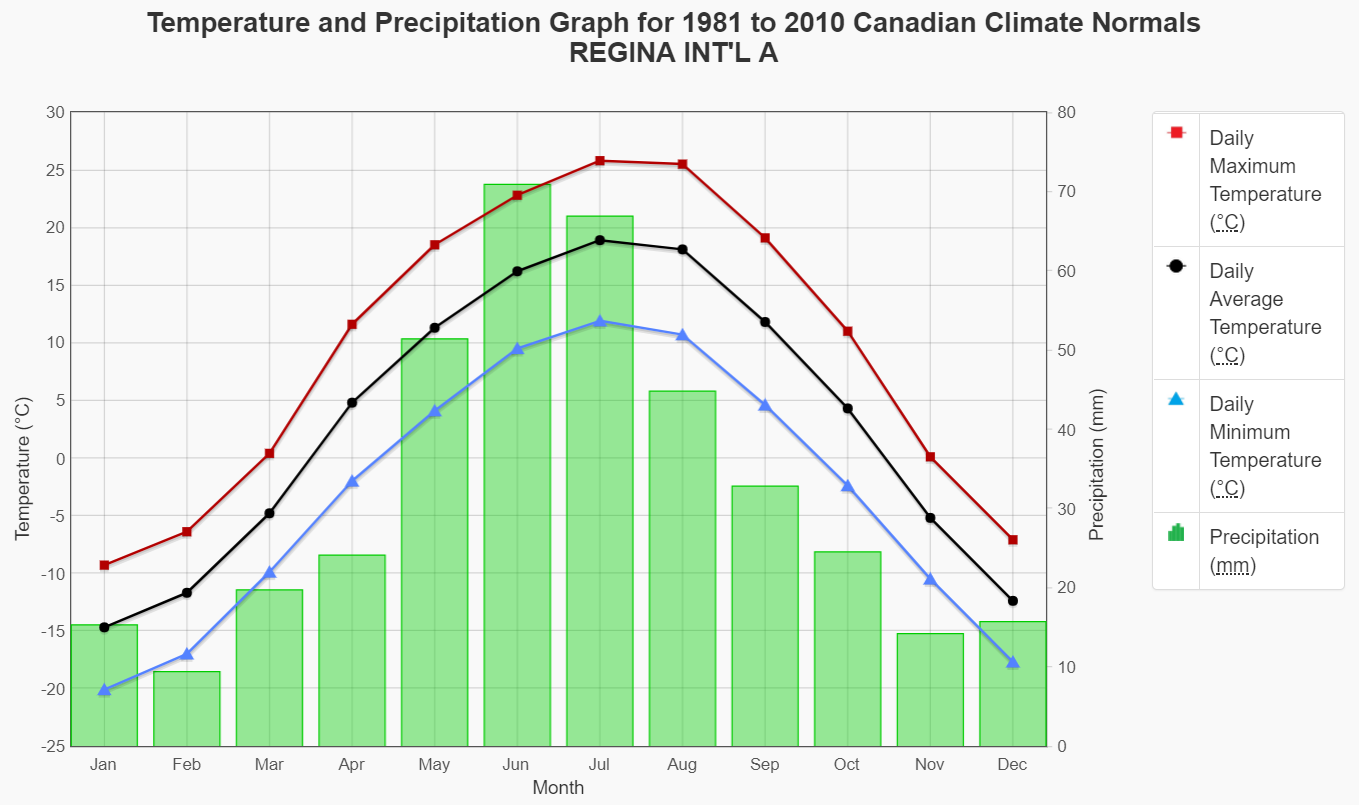Cattle farmers in southern Saskatchewan face some tough decisions as the hay supply continues to decrease.
The province is challenged by one of the driest seasons on record, which is impacting yields. In July, Regina saw only 1.8 millimetres of rain.
In contrast, the city’s average amount of July precipitation was 66.9 millimetres between 1981 and 2010, according to data from the Government of Canada.

Source: Government of Canada
In addition to a lack of rain, southern Saskatchewan is also dealing with above-average temperatures. In Regina, last month’s temperatures were four degrees higher than average, according to a CBC report.
Todd Lewis, president of the Agricultural Producers Association of Saskatchewan, thinks that some smaller producers may end up selling or disbanding their herds due to the shortage of hay, according to a CBC News article yesterday.
Ryder Lee, chief executive officer of the Saskatchewan Cattlemen’s Association, emphasized how serious the situation is in an interview with Farms.com today.
“Usually, there are some water pipe breakages due to the soil shifting,” said Lee. “On average, there are about seven or eight (breakages).”
There was over thirty breaks this June because the soil is so dry, he explained. With dry soil comes poor crop yields, including hay.
And these challenges are leading farmers to make some changes.
“Summers are usually pretty quiet for (cattle) sales,” he said. But, this year, there has already been a bit of a herd reduction.
For those farmers who want to avoid downsizing, the other option is to be innovative.
Producers start to get creative in providing their cattle with the required nutrients at a lower price point when they are faced with such a challenge as a hay shortage, Lee explained.
“Hay is one thing that cattle like to eat, but the rumen does a lot of wonderful things with a lot of different feed.”
Image source: Matt_Gibson/iStock/Getty Images Plus photo